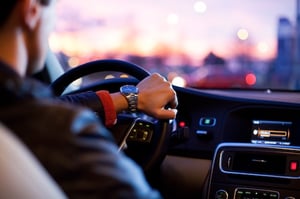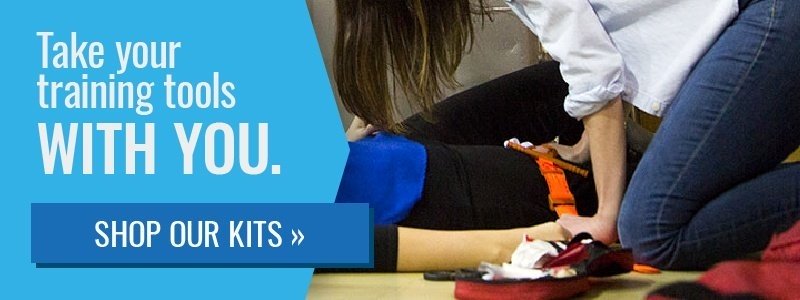 Many people go through their entire lives and never have to provide emergency medical treatment to save someone's life. But what if tomorrow you're driving home from the grocery store or to your son's soccer game, and you witness a serious car accident?
Many people go through their entire lives and never have to provide emergency medical treatment to save someone's life. But what if tomorrow you're driving home from the grocery store or to your son's soccer game, and you witness a serious car accident?
Obviously, you call 911, check to see the severity of injuries or if everyone is okay.
But what else do you do if they're not? In this situation, you're the first responder; what can you do to help until EMTs arrive?
Is there immediate danger?
Signs of immediate danger might be a car teetering precariously over a steep embankment or a vehicle that's engulfed in flames. In situations like these, your priority is to get the injured person out of the vehicle as quickly and as safely as possible. Be prepared to help someone out of the car if they are in shock, unconscious, or stuck under something heavy.
Is anyone seriously bleeding?
A person with severe, life-threatening bleeding has just minutes to live. So, if you see blood, act quickly. It's wise to keep a Bleed Control Kit, or at the very least, a tourniquet in your car in case you find yourself in this type of situation.
You may wonder, is that really necessary? The answer is yes because life-threatening injuries are more common than you might think, and they're even more unpredictable. Watch Kinneil and Angelia's story to see of real life example of this.
Remember, just because you don't drive an ambulance doesn't mean you can't save a life. When you find that you are the first responder on a scene, you must act as such.
Should you direct traffic?
It's incredibly difficult to direct traffic if you've never done it before, and it's and also extremely dangerous if you're not wearing a high-visibility vest. The best thing to do is turn on your hazard lights and park your car appropriately for the situation. If the wrecked car is in the middle of the street, parking your car next to it with your hazard light on will alert other drivers of the accident. On the other hand, if the wrecked car is off the road, you should also pull your car completely off the road. The last thing you want is to cause a second car accident because you didn't park carefully.
How long should I stay?
Law enforcement will most likely want to talk to you to gain more information about the accident and the injured people involved. If possible, stay long enough to answer their questions and provide them with the facts and details that only you can provide.
Do you have a Bleed Control Kit in your vehicle?
If you take one thing away from this article, let it be this: Get a Bleed Control Kit and keep it in your vehicle. You never know when you might need it.
.png?width=499&height=133&name=Logo-menu%20(1).png)



